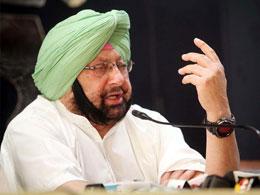India’s “bread basket” now a narco-state

The State of Punjab in India is seeking 10 Indo-Canadians and wants them extradited back to their homeland to help unravel the operations of drug cartels.
Punjab Chief Minister Captain Amarinder Singh has urged the central government to push for the extradition of the 10 Canadian Indians and has written to Indian Home Minister Rajnath Singh and External Affairs Minister Sushma Swaraj to seek the extradition.
The cases, according to Indian media have been pending for between three to four years.
The state government is aggressively pursuing the extradition of these suspects as their custodial interrogation is important to reveal the drug cartel and its patrons in the state, a State government spokesperson was reported as saying by PTI.
The Chief Minister’s office identified the 10 as Sarabjit Singh Sandhar, alias Nik, a resident of village Balioun in Samrala, who is now living in Vancouver, Ranjit Singh Aujla, a resident of village Muthada Kalan in Jalandhar district, Nirankar Singh Dhillon of village Apra Mandi in Jalandhar, Gursewak Singh Dhillon, Amarjit Singh Kooner, Lamer Singh Daleh, Pardeep Singh Dhaliwal, Amarinder Singh Cheema, Parminder Singh Deo and Ranjit Kaur Kahlon.
Drug trafficking and rampant drug abuse have become one of Punjab’s most significant socio-political challenges, even threatening the entire country’s national security in many ways, reported the Observer Research Foundation based in New Delhi.
The drug problem has only gotten worse over the years, and was a major issue in the State assembly elections that concluded in early 2017 that saw Amarinder Singh seize power from the Badal clan.
A study conducted by the department of psychiatry at the Postgraduate Institute of Medical Education and Research (PGIMER), Chandigarh, and Indian Council of Medical Research (ICMR), New Delhi, found that one in six Punjabis are addicted to substance abuse.
According to the study, 3.1 million people in the state have substance abuse problems while 2.97 million are dependent on it. People are most addicted to alcohol, followed by tobacco and then opioids — heroin, smack, brown sugar, opium, poppy husk, etc.
Punjab’s proximity to the heroin-producing Golden Crescent—Pakistan, Afghanistan and Iran— makes it extremely vulnerable. Located on a long-standing smuggling route that sees heroin transported from Afghanistan via neighbouring Pakistan and on to markets elsewhere in the region, Punjab, once regarded as India’s “bread basket” has emerged as a final destination for various illegal drugs.
Observer Research Foundation said politics and drugs are inextricably linked in Punjab.
It concluded that while drug addicts are being caught, the big suppliers have virtually remained untouched.
“The Amarinder Singh government has not spelt out clearly how the new strategy to target the suppliers would be different from that pursued by the previous government. Except for public statements, there is no blueprint on how the government proposes to tackle the enduring police-politician-peddler nexus,” it said.









